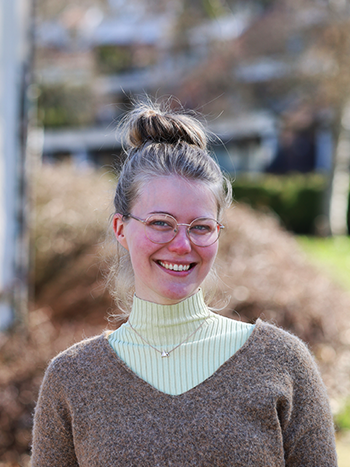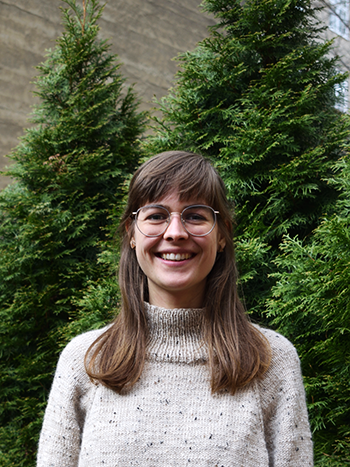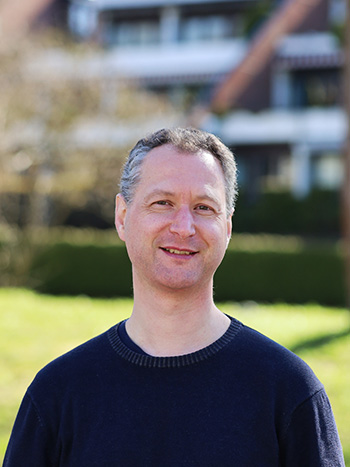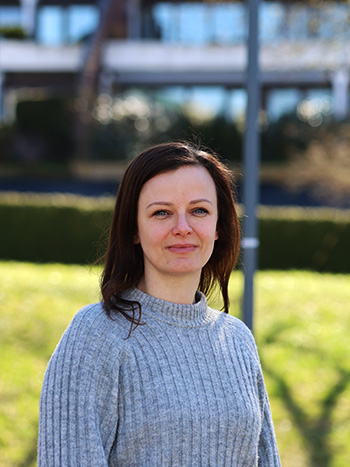
Johanna Bokedal's PhD project aims to research the existence of a specifically Jewish Symbolic Universe during Late Antiquity, as well as its interface with local identity formation. Additionally, her research interest extend to the presentation of religion in modern museum contexts.
Bokedals PhD project takes inspiration from a paper she published in 2022 (The Symbolic Universe of the Temple, 2022). In her earlier work, she analyzed the fifth-century synagogue at Sepphoris, nestled in the Galilee region of modern-day Israel.
“I will start by applying perspectives from Sociology to consider self-categorized Jewish identity formation with reference to scripture and tradition, and how this was expressed in material culture. In dialogue with this, I will use perspectives from Interreligious Studies and Comparative Religion to consider the role of Christian and Graeco-Roman intercultural and interreligious interaction in the shaping of both the visual Jewish Symbolic Universe and local identities,” Johanna explains.
During her Master’s, Johanna found inspiration to continue researching Late Antique Jewish material culture. The lectures on comparative perspectives and archeology’s role in historical research on religion and identity sparked numerous later reflections.

Interreligious Dialogue and Eco-Theology
Lea Matthaei’s academic journey covers a range of disciplines. She has a background in Social Work and is an educated and ordained Deacon. Additionally, she pursued a Masters of Philosophy in “Religion in Contemporary Society”. Her PhD project aims to research the contributions of interreligious dialogue to current discussions in eco-theology.
As society changes, talks about interreligious dialogue have become more important. Lea’s PhD project will look into the importance and purpose of interreligious dialogue. It will also explore the structured religious aspects within these discussions and examine how shared values and differing opinions play out in ongoing debates about eco-theology.
Eco-theological approaches to theology are oriented around both theory and practice, especially related to two main questions: 1) What does theology teach us about our shared home? and 2) What does our shared home teach us about God.
“I have always been interested in questions of ecology and church, and in the role of interreligious dialogue. My side job in Areopagos, an organization working with dialogue and faith practices, widened my horizon regarding this topic even further. As a Social Worker, I am always interested in improving society and questions of a “good life,” Lea says.
A Study of Gregory of Nazianzus' Preaching

Ole Vinther pursued his theological studies at Aarhus University, complemented by an MBA from the University of Tromsø and a Master in Practical theology from the University of Oslo. He also served as an Evangelical Lutheran pastor in Norway and Denmark for approximately 14 years. His PhD project aims to research the function and role of Christian preaching in a larger historical and societal perspective.
Vinther focuses on the Early Greek church father Gregory of Nazianzus (329-390) and his sermons/orations. He will explore whether, to what extent, and how Gregory of Nazianzus aimed to influence culture and worldview through his preaching.
“I have long been interested in the relation between Christianity and people, culture, and society, as well as in communication of the Christian faith. As a pastor, I have preached many sermons. I have furthermore been fascinated by the Early Church and the Church Fathers. I think there is much we can learn from Church history and history in general,” Ole says.
Ole has studied at the Faculty of Theology in Oslo before. According to him, there are good opportunities here for professional development at an international level and in an encouraging environment.

The Role of Education in Shaping Jewish Identity
Nina Gacic’s PhD project seeks to uncover the experiences of young Norwegian Jews during their high school education when studying topics related to Jewish history, religion, and culture. Furthermore, she will explore how these experiences have influenced their perception of Judaism and their own Jewish identity.
“Jewish history has fascinated me since secondary school. Considering my background as a teacher in Religious education, it came naturally to me to synthesize my personal interest and my professional background in this project,” Nina says.
Gacic’s academic background is in pedagogy. She has taught various subjects in elementary school, including Religious education. Her master’s thesis looked closely at how a direct meeting between young Jews and non-Jews affects the formation of knowledge about Jewish culture, religion, and history among non-Jews
